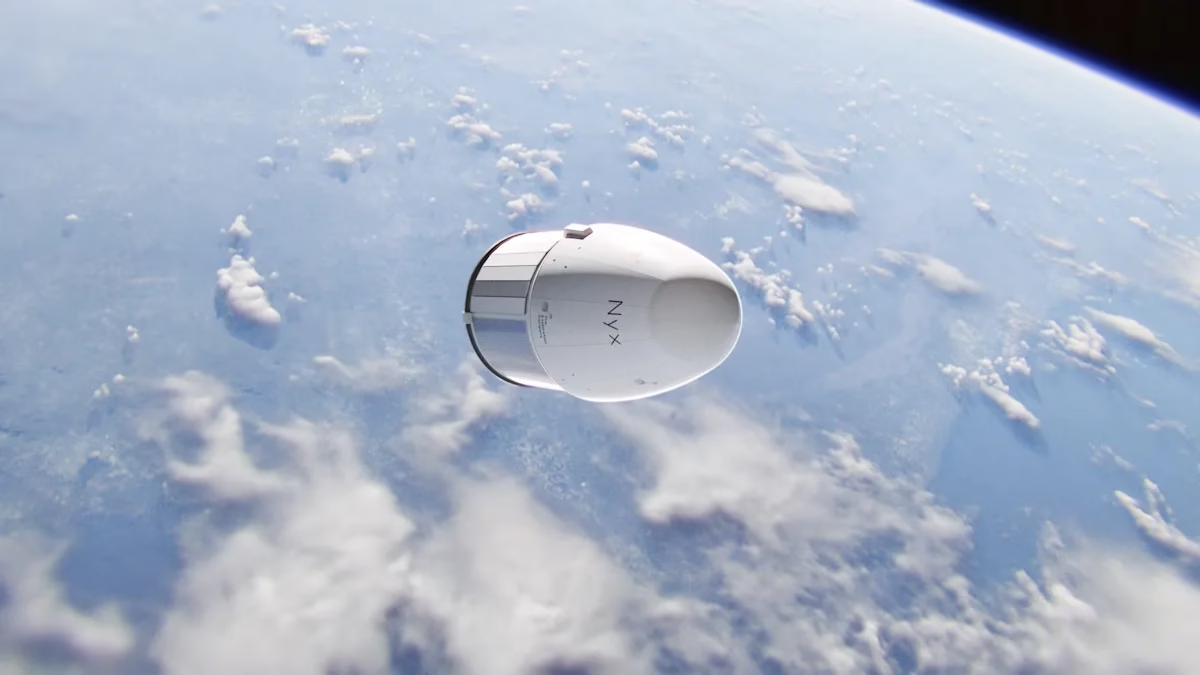A space capsule carrying the remains of 166 individuals and a scientific payload of cannabis plants has been lost in the Pacific Ocean following a crash caused by parachute failure.
The Nyx capsule, developed by German aerospace startup The Exploration Company, launched on 23 June aboard a SpaceX rocket as part of a rideshare mission that included various commercial payloads. Among them were cremated remains and DNA samples sent by Celestis, a Texas-based memorial spaceflight company, as part of its “Mission Possible” cosmic funerary service.
The capsule successfully reached orbit and initiated a controlled reentry into Earth’s atmosphere. However, on 24 June, its landing parachutes failed to deploy, leading to an uncontrolled crash into the ocean. All contents, including the roughly 300 kg of cargo, have been declared lost.
In a statement, The Exploration Company said the capsule performed well during most phases of the mission:
“The capsule was launched successfully, powered the payloads nominally in orbit, stabilized itself after separation, re-entered, and re-established communication after blackout. But we lost communication a few minutes before splashdown.”
The company, which was making its first attempt at sending customer payloads to space, is now investigating the failure. It described the mission as a “partial success” and vowed to apply lessons learned to future flights.
This is the second time Celestis has experienced a loss. In 2023, a rocket carrying the ashes of former NASA astronaut Philip K. Chapman exploded mid-flight over New Mexico.
Celestis issued a statement offering condolences and support to affected families, saying:
“Though we currently believe that we cannot return the flight capsules, we hope families will find some peace in knowing their loved ones were part of a historic journey… now resting in the vastness of the Pacific, akin to a traditional and honored sea scattering.”
Also aboard the Nyx capsule was plant material and seeds from Martian Grow, a citizen science initiative aimed at studying how cannabis plants respond to microgravity. The experiment was designed to explore how plant life might adapt to conditions on Mars.
Despite the loss, both The Exploration Company and Celestis expressed commitment to continuing their missions, signaling that innovation—and its risks—are integral to the future of space exploration and memorialization.



